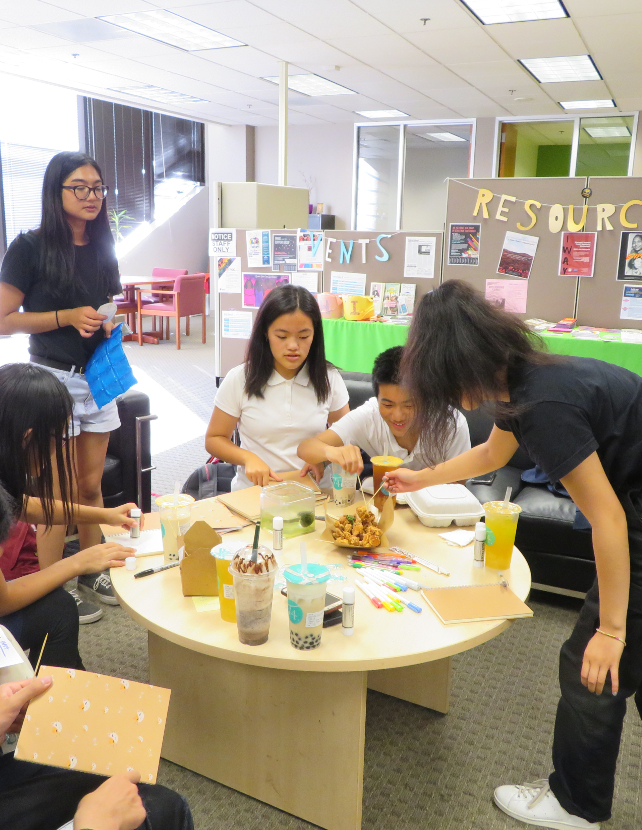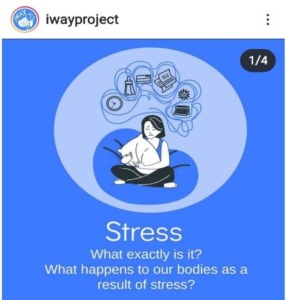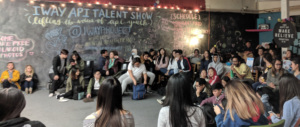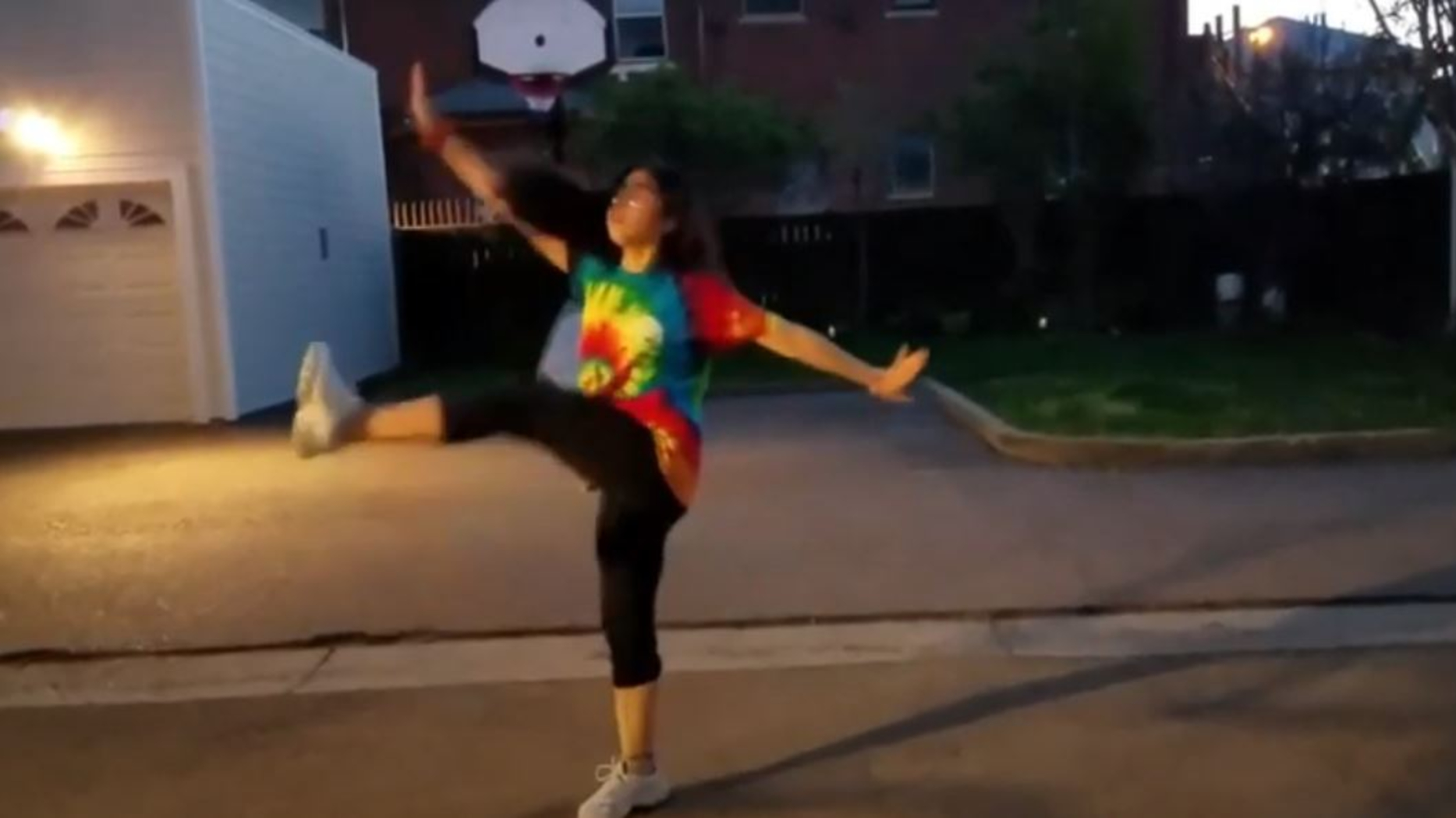Supporting Asian Youth in Mental Health and Wellness
Highlights

In 2020, Improving the Wellness of Asian Youth (IWAY), a project of PHI’s Health Intervention Projects for Underserved Populations, supported Asian high school youth and young adults with online workshops, counseling, youth programs and social media outreach offering trauma-informed mental health and wellness resources and support.
18K+ people reached through social media with mental health resources for young Asian Americans
96 high school youth attended virtual mental health workshops
-
Focus Areas
Women, Youth & Children -
Issues
Mental Health
Mental health issues have often been silenced and stigmatized in Asian communities, leading to unmet needs for many young people. PHI’s Health Intervention Projects for Underserved Populations created its Improving the Wellness of Asian Youth (IWAY), a project funded by the U.S. Substance Abuse and Mental Health Services Administration (SAMHSA), to meet the mental health and wellness needs of Asian youth and their caregivers throughout Alameda County, California.
IWAY offers professional counseling, youth empowerment and leadership programs, peer support groups, a high-school internship program and school-based programs. Its programs and services are free and youth can earn incentives upon enrollment and completion of programs. Youth who seek out IWAY services do not need insurance or parental consent.
 With the onset of the coronavirus pandemic, in 2020 five former IWAY participants formed a peer-led social media team to disseminate COVID-19 news and mental health resources for Asian youth and young-adult communities. Along with four IWAY high school interns, the team created Instagram posts about COVID-19 news, mental health resources (e.g., suicide hotlines, sexuality issues, domestic violence, drug use, and eating disorders), mental health stigma in Asian American community, gratitude, self-compassion, holiday blues, and stress that reached more than 18,000 people. They also produced a podcast series, the Not So TMI Podcast, with topics on self-isolating, self-care, Asian identity, mental health stigma, self-compassion, gratitude, and stress.
With the onset of the coronavirus pandemic, in 2020 five former IWAY participants formed a peer-led social media team to disseminate COVID-19 news and mental health resources for Asian youth and young-adult communities. Along with four IWAY high school interns, the team created Instagram posts about COVID-19 news, mental health resources (e.g., suicide hotlines, sexuality issues, domestic violence, drug use, and eating disorders), mental health stigma in Asian American community, gratitude, self-compassion, holiday blues, and stress that reached more than 18,000 people. They also produced a podcast series, the Not So TMI Podcast, with topics on self-isolating, self-care, Asian identity, mental health stigma, self-compassion, gratitude, and stress.
The social media team also organized a virtual mental health panel featuring six social media influencers from the Asian American and Asian communities, with 87 attendees logging in from across the country and internationally. Participants heard the panelists discuss their mental health journeys, self-image, and ways they learned to cope with stress and mental health issues.
 In February 2020, right before the shelter-in-place order, IWAY held their third annual youth talent show with 70+ attendees. The youth-led showcase featured many amazing youth performers and artists from the community. Along with performances, the youth planning committee also coordinated a mental health panel where Asian youth share about their mental health experiences and stories.
In February 2020, right before the shelter-in-place order, IWAY held their third annual youth talent show with 70+ attendees. The youth-led showcase featured many amazing youth performers and artists from the community. Along with performances, the youth planning committee also coordinated a mental health panel where Asian youth share about their mental health experiences and stories.
Also in 2020, IWAY health educator staff conducted eight virtual peer support groups, held eight virtual social hours, and led four online mental health workshops for high school youth. Participants valued the chance to share their stories and connect with peers who face similar challenges, and said that they gained valuable new skills and insights from the workshops and counseling sessions.
What did you find most valuable from the workshop?
I find it valuable that the topic of mental health is being brought up and being normalized. I learned a lot of tips on what to do when I am feeling stressed.
It was really nice to hear about how others felt the same ways as me in regards to stress, burnout, and mental health, in general.
What I liked the most was that it prompted our club to discuss mental health, and it's nice to know there are others who are experiencing the same feelings and have the same parent/child relationship.
I found learning about mental health specifically in the context of Asian-American households important because I could resonate with the presentation.
Being able to have a safe space to hear that others are going through what I'm going through, therefore I am not alone in this.
Describe any changes in your thoughts or feelings after participating in counseling.
I feel happier...I have positive thoughts about life…
I feel more responsible and mature in the way I think about my career, life, and next steps in the future.
Changed for the good… [I learned] skills and practices to help train my brain muscles to go through the world more happy.
I feel more positive...talking about my problems made me feel less stressful and now I have more motivation to do the things I want.
I grew more. I’m more confrontational to myself about my problems. I feel things are different now. Over the course of our counseling, I had lost friendships. I realized I had to lose them because they were bad for me. And it’s ok to feel what I’m feeling now [and] giving myself the time to grieve.
Definitely happier...feel better about myself and learned to take care of myself. Before, when I had a problem, I wouldn’t take a break. Now, I know how to navigate a problem and know what to do.
Better in telling people about my mental health and knowing what it is and explaining it and realizing that I’m not just weird, [that] there’s something wrong with me.
Better at recognizing my emotions... I don’t feel so guilty about having these emotions.
Learn more about IWAY on the project website and view the video below from IWAY alumni Kimberly Wong describing how IWAY made a positive impact on her mental health.
Work With Us
You change the world. We do the rest. Explore fiscal sponsorship at PHI.
Support Us
Together, we can accelerate our response to public health’s most critical issues.
Find Employment
Begin your career at the Public Health Institute.

